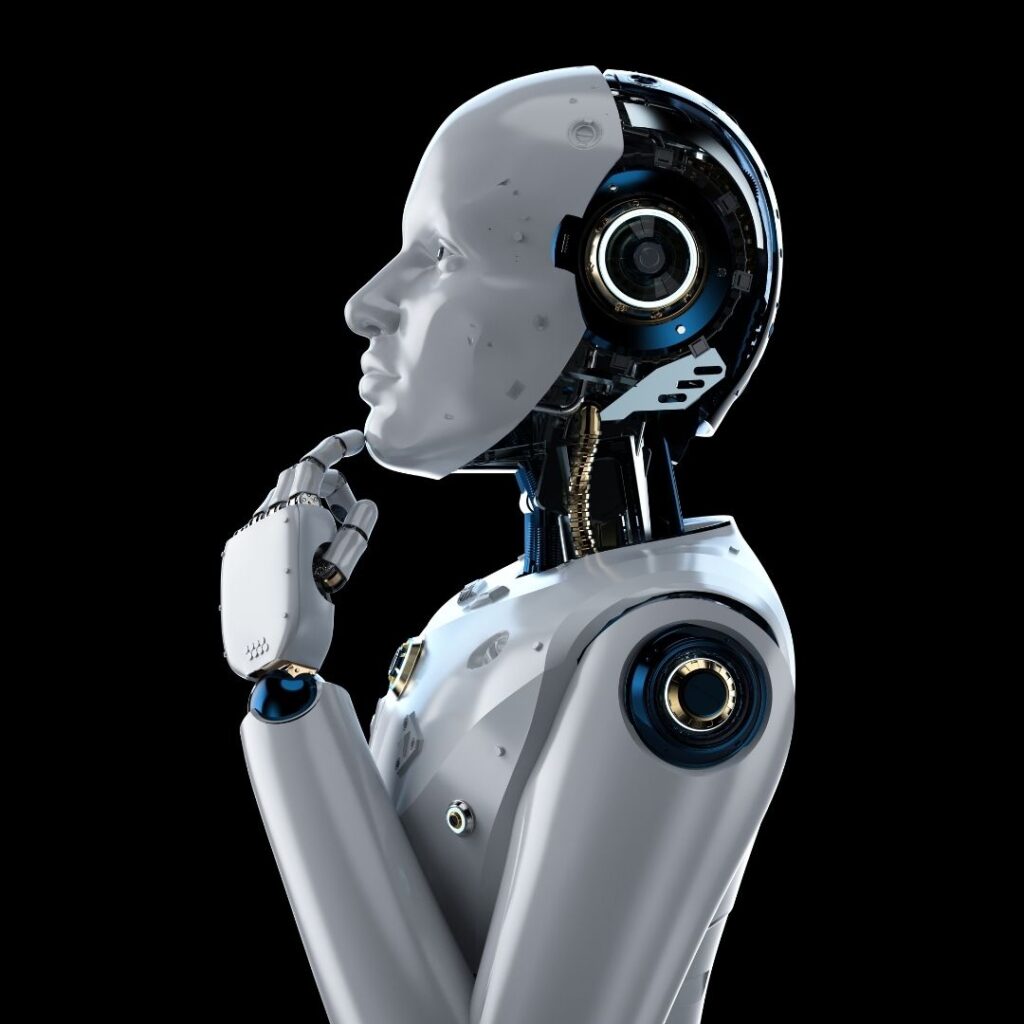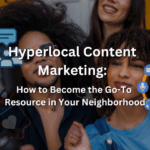AI has penetrated every industry, including content creation. It has revolutionized content generation, offering automated writing, curation, and optimization.
At Clear Imaging, we have experienced first-hand the impact of this disruptive technology, and many of our clients have questions about it. Here, we will give you an overall view of AI-generated content and discuss its pros and cons for content marketers.
AI-generated content refers to text, images, or other media created with the assistance of artificial intelligence algorithms. These algorithms use patterns and data to produce human-like content, from articles and reports to visual art and music. AI-generated content has applications in various fields, from automating routine writing tasks to personalizing marketing materials.
The Evolving Role of AI in Content Creation

This highly dynamic technology is evolving at a rapid pace, and its role covers various content-creation aspects such as:
- AI streamlines content creation by automating tasks like research, data analysis, and even writing, allowing writers to focus on creativity.
- Artificial intelligence tools provide valuable insights by analyzing vast datasets, aiding content strategy decisions, and improving audience engagement.
- The technology enables personalized content recommendations based on user behavior and preferences, enhancing user experiences.
- AI-driven tools optimize content for search engines, improving visibility and ranking in search results.
- NLP algorithms help generate human-like content, making AI-authored pieces more engaging and relatable.
- Artificial Intelligence curates’ content from various sources, helping businesses stay updated and providing fresh material for their audience.
- It can translate and adapt content for diverse markets, expanding global reach.
- AI-powered chatbots and virtual assistants provide real-time customer support and generate responses based on user inquiries.
- It automates video editing and image recognition and even generates visuals, making multimedia content creation more accessible.
- AI tools like grammar checkers and plagiarism detectors ensure content quality and authenticity.
Advantages That AI-Generated Content

There are many notable advantages of AI-generated content, such as:
- Efficiency – AI can produce content much faster than humans, saving time and resources.
- Consistency – AI ensures uniformity in writing style, tone, and formatting across large volumes of content.
- Cost-Effective – It reduces labor costs associated with content creation, making it a cost-effective solution.
- Personalization – AI tailors’ content to individual user preferences, enhancing user experiences.
- Data-Driven Insights -AI analyzes data to create content that resonates with the target audience, improving engagement.
- Multilingual Capabilities -AI can generate content in multiple languages, facilitating global reach.
- Content Variety – AI creates diverse content types, including articles, reports, visuals, and more, meeting various content needs.
- 24/7 Availability – AI operates round-the-clock, ensuring timely content updates and responses.
- Scalability – It adapts to changing content demands, accommodating growth without compromising quality.
- Consistency –AI ensures that content adheres to brand guidelines and follows compliance standards.
Some Challenges Faced in AI-Generated Content

Although there are undeniable advantages to using AU-generated content, some challenges include:
- Lack of Creativity – AI may struggle to produce truly creative or innovative content, often sticking to patterns and existing data.
- Originality Concerns – AI-generated content can inadvertently replicate existing material, leading to issues of plagiarism and unoriginality.
- Loss of Human Touch – The absence of human input can result in content needing more personal touch, emotion, and nuanced perspectives that humans bring.
- Contextual Understanding – AI may misinterpret context, leading to factually correct content that lacks relevance or appropriateness.
- Quality Control – Maintaining content quality, accuracy, and consistency can be challenging, requiring constant oversight.
- Engagement and Connection – Content created by AI may struggle to connect with readers on a deep emotional level, impacting engagement.
- Complex Tasks – AI may fall short in capturing the depth of expertise required for intricate or specialized content.
- Human Supervision – AI-generated content often requires human supervision to align with brand values, tone, and authenticity.
Ethical Considerations Surrounding AI-Generated Content
Many marketers wonder whether it is ethical to use AI-generated content. Here are some challenges:
- Plagiarism and Copyright – Marketers must ensure that the AI-generated content doesn’t infringe upon copyrights or produce plagiarized material.
- Bias and Discrimination- It is crucial to address potential biases in AI algorithms that may lead to biased or discriminatory content.
Users must indicate when content is AI-generated to maintain transparency and trust, take steps to prevent the dissemination of false or misleading information by AI-generated content.
As AI advances, it reshapes the content creation space, allowing businesses to deliver engaging, timely, and personalized content to their audiences efficiently and at scale. For more information regarding AI-generated content, contact Clear Imaging at 1(800) 380-6942 during business hours or complete the form on this page if you have any inquiries about our marketing solutions.






